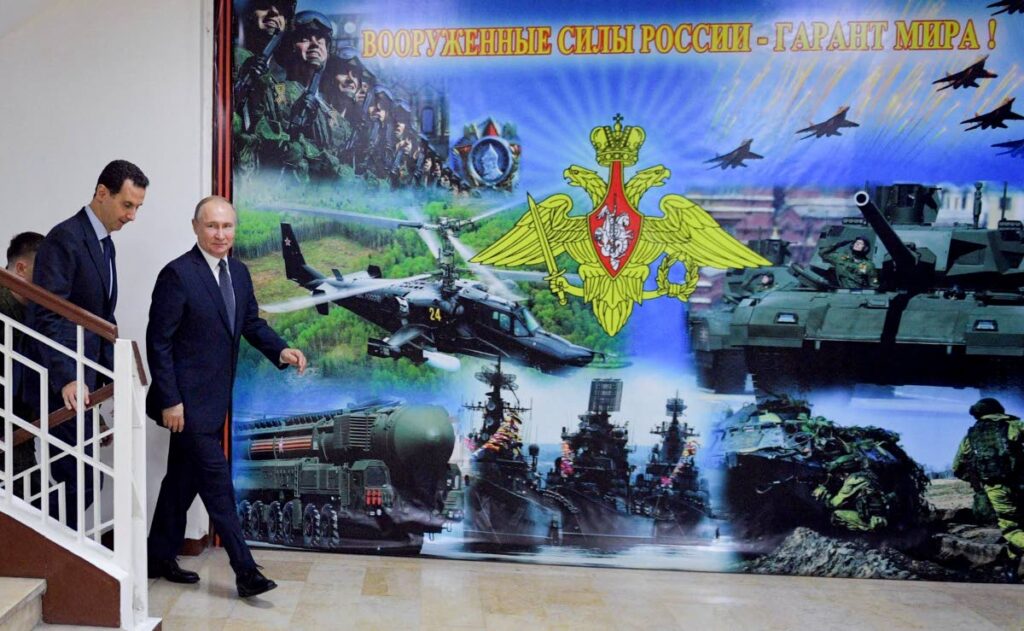All is not fair in war

Don Quixote is perhaps the most famous delusionist in literature, imagined into eternal life in the early 1600s by the universally celebrated Spanish writer Miguel de Cervantes. It was the lovesick Quixote who first suggested to us that all is fair in love and war and the idea enjoys wide currency as a much-quoted proverb. But why would we take the words of a mad man to heart and live by this ridiculous creed?
It seems that we need excuses for our bad, some might say evil, behaviour. From the extent and prevalence of domestic crime, sometimes euphemistically described as crimes of passion for their hotheadedness, it is clear that many people believe in that old tenet.
Demented, soulless dictators and power-hungry warlords such as Russia’s Vladimir Putin and Syria’s Bashar al-Assad are living proof that for some, war too has no limits and can be justified.
It would be generous to credit them with misunderstanding the notion of a just war. A war may be just because it defends a country’s citizens and territory against aggression, but that does not mean you can use any means and method of destruction to quell your enemy. As there is honour among thieves, there are rules of engagement in war.
Sadly, we have seen Assad and Putin flout those rules not only to subdue their perceived enemy but also to subjugate their own people.
The humanitarian abuse in Ukraine, arising from the unquestionably unjust war being conducted by Russia, is breathtaking. The world has ringside seats at the mass exodus of millions of Ukrainian people fleeing the bombing of civilians in towns and cities captured by invading soldiers and the impending massacre of many more in the capital city of Kyiv, and possibly Lviv, if Ukrainians remain determined to fight to the bitter end. There is little doubt that Putin and his generals are committing war crimes and will pay the price. Such transgressions cannot go unpunished, and mainly because so many people, companies and governments in the world have come out against Russia.
I should not fail to point out that we, the world’s people, took little notice when the Russians, in two wars with Chechnya, five years apart, mostly flattened Grozny and killed nearly 8,000 Chechens. In 2003, the UN described the city as the most destroyed city on earth.
But Aleppo was still to come. For one month in 2016, Russian forces defending the Syrian dictator Assad against opposition forces, were reported as using illegal war tactics and arsenals and pummelled the ancient city with indiscriminate aerial bombing, killing innumerable civilians and reducing large parts of Aleppo to dust.
Aleppo is not an ordinary place, it was home to six UNESCO World Heritage sites and is one of the longest-settled cities in the world, going back several millennia BC. It also contained great treasures of mediaeval Islamic architecture. But during the Battle of Aleppo, 2012-16, Islamic rebel forces, the Syrian army and then Russian forces completely destroyed 24 heritage sites, partly destroyed 186 and many more were less damaged, according to UN satellite pictures. A third of the thousands of severely damaged Syrian buildings were in Aleppo.
International bodies protested over the barbarity of Russian war methods and the UN Security Council condemned them but the big commercial guns had little if anything to say. Syria was a long way away geographically and culturally.
Not so Ukraine, sitting on Western Europe’s doorstep, even if her knocking has been in vain.

Apart from its importance as Ukraine’s capital, Kyiv is recognised as a major cultural centre of Eastern Europe, with its fair share of historical, architectural and cultural treasures, such as the exquisite World Heritage site of St Sophia’s Cathedral; the old town centre of Lviv is another.
What is to become of these if Russia keeps up its wild bombing campaign? Perhaps Putin’s diatribe on his neighbour’s cultural ties to Russia and Kyiv’s enormous historical value will protect it from ruin, but truth is the first casualty of war, as the axiom goes. Doublespeak becomes common parlance.
In war, the human loss is disastrous, but so is the loss of the people’s art and culture, which gives expression to their identity and history. The kings of Spain understood that perfectly. Once the Moors had been defeated, after 700 years of Islamic rule, they razed the mosques to the ground and built churches on the foundations. Hitler pillaged the art of defeated countries and Putin might choose to do the same in Ukraine, procuring it for his native St Petersburg’s glorious Hermitage Museum.
While we must appreciate the determination of the allies, even if they have been too slow to decide on the depth of sanctions against Russia, I am in two minds about sanctions on culture, because the arts are what unite us across boundaries, and we should feel compassion for the many international Russian artists who may not be Putin supporters and are now sanctioned. But war is also a time of excess.


Comments
"All is not fair in war"